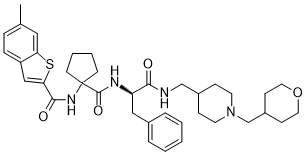Promoter of the BTG3 gene in HepG2 and 97H cells was hypermethylated in comparison to LO2 cells. Our data indicate that the promoter hypermethylation contributes to downregulation of BTG3 in HCC. The biological meaning of down-regulated BTG3 in HCC cells and tissues remains unclear. In-depth studies are needed to clarify the  aberrant roles of BTG3 in HCC progression. Second, a series of relevant functional experiments in vitro, from positive to negative, were performed in our study. Here, we observed that BTG3 could strongly inhibit the proliferative abilities of HCC cell lines. As a member of the anti-proliferative gene family, over-expression of BTG3 also inhibits cell proliferation in breast cancer. The inhibition of cell proliferation by BTG3 is thought to result from its negative regulation of cell cycle. Our flow cytometric analysis showed that BTG3 was expressed highly in late G1 phase before the entry of the cells in S phase, while down-regulation of BTG3 promoted G1/S cycle transition of HCC cells. Several reports demonstrate that BTG3 constitutes important negative regulatory mechanism for Src-mediated signaling and it inhibits transcription factor E2F1, suggesting it has a negative regulatory influence consistent with its role to inhibit progression into S-phase, meanwhile, BTG3 was identified as a transcriptional target of p53. BTG3 interacts with CHK1, a key effector kinase in the cell cycle checkpoint response, and regulates its phosphorylation and activation. Moreover, MiR-378 AbMole Indinavir sulfate promotes cellular transformation, at least in part, by AbMole Folic acid targeting and inhibiting TOB2, which is further elucidated as a candidate tumor suppressor to transcriptionally repress proto-oncogene cyclin D1. Loss of BTG2 in estrogen receptor-positive breast cancer is associated with overexpression of Cyclin D1 protein. Our data showed that up-regulated p27 and down-regulated Cyclin D1 might be responsible for G1/S cycle arrest induced by BTG3 in HCC. BTG3 was reported to be linked with aggressiveness of ovarian carcinoma. Thus, we hypothesized BTG3 might also play a role in HCC by suppressing invasion of HCC cells. Our results showed that BTG3 displayed the marked suppression of invasive abilities of HCC cells in vitro. Thus, down-regulation of BTG3 alone is a necessary factor for cell proliferation, cell cycle transition and invasion in HCC cells. In summary, our study presents a significant association between down-regulation of BTG3 through hypermethylation and HCC progression. BTG3 inhibits proliferation through inducing cell-cycle arrest and invasion of HCC cells. BTG3 may be a significant prognostic biomarker of HCC progression. A better understanding of the function of BTG3 in HCC progression would provide a valuable marker and novel therapeutic strategy for HCC patients.
aberrant roles of BTG3 in HCC progression. Second, a series of relevant functional experiments in vitro, from positive to negative, were performed in our study. Here, we observed that BTG3 could strongly inhibit the proliferative abilities of HCC cell lines. As a member of the anti-proliferative gene family, over-expression of BTG3 also inhibits cell proliferation in breast cancer. The inhibition of cell proliferation by BTG3 is thought to result from its negative regulation of cell cycle. Our flow cytometric analysis showed that BTG3 was expressed highly in late G1 phase before the entry of the cells in S phase, while down-regulation of BTG3 promoted G1/S cycle transition of HCC cells. Several reports demonstrate that BTG3 constitutes important negative regulatory mechanism for Src-mediated signaling and it inhibits transcription factor E2F1, suggesting it has a negative regulatory influence consistent with its role to inhibit progression into S-phase, meanwhile, BTG3 was identified as a transcriptional target of p53. BTG3 interacts with CHK1, a key effector kinase in the cell cycle checkpoint response, and regulates its phosphorylation and activation. Moreover, MiR-378 AbMole Indinavir sulfate promotes cellular transformation, at least in part, by AbMole Folic acid targeting and inhibiting TOB2, which is further elucidated as a candidate tumor suppressor to transcriptionally repress proto-oncogene cyclin D1. Loss of BTG2 in estrogen receptor-positive breast cancer is associated with overexpression of Cyclin D1 protein. Our data showed that up-regulated p27 and down-regulated Cyclin D1 might be responsible for G1/S cycle arrest induced by BTG3 in HCC. BTG3 was reported to be linked with aggressiveness of ovarian carcinoma. Thus, we hypothesized BTG3 might also play a role in HCC by suppressing invasion of HCC cells. Our results showed that BTG3 displayed the marked suppression of invasive abilities of HCC cells in vitro. Thus, down-regulation of BTG3 alone is a necessary factor for cell proliferation, cell cycle transition and invasion in HCC cells. In summary, our study presents a significant association between down-regulation of BTG3 through hypermethylation and HCC progression. BTG3 inhibits proliferation through inducing cell-cycle arrest and invasion of HCC cells. BTG3 may be a significant prognostic biomarker of HCC progression. A better understanding of the function of BTG3 in HCC progression would provide a valuable marker and novel therapeutic strategy for HCC patients.
The link between hyperhomocysteinemia and atherosclerosis was originally proposed
Leave a reply